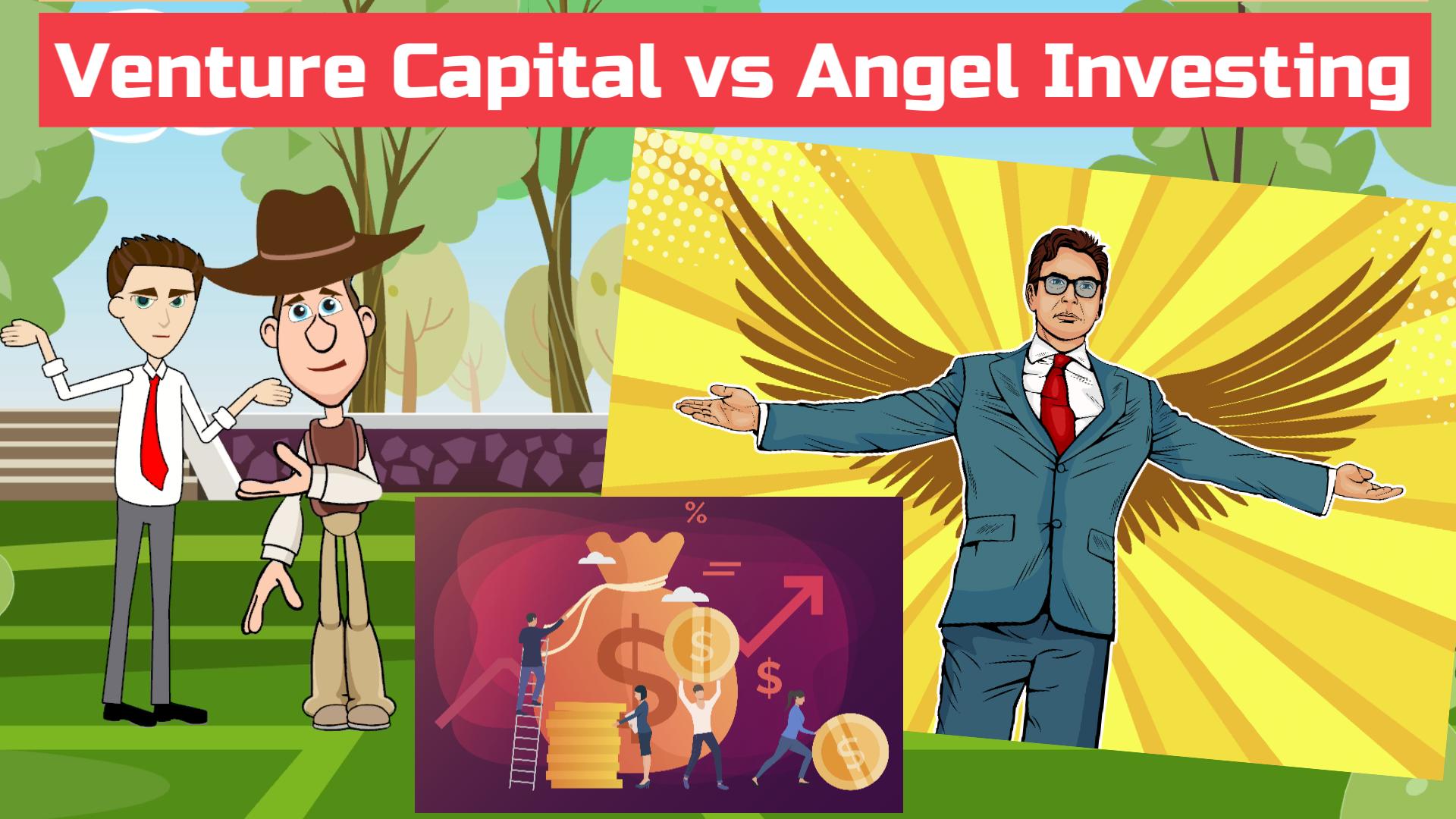Venture Capital vs Angel Investing Comparison for Kids and Teens
This video does a VC or venture capital vs angel investing comparison in a simple, concise way for kids and beginners. It could be used by kids & teens to learn about VC vs Angel Investing, or used as a money & personal finance resource by parents and teachers as part of a Financial Literacy course or K-12 curriculum.

Suitable for students from grade levels:
- Kindergarten
- Elementary School
- Middle School
- High School
The topics covered are:
- Venture Capital vs Angel Investing: Similarities
- Venture Capital vs Angel Investing: Difference
- More differences
Can you tell me the differences between Venture Capital and Angel Investing?

Let’s start with the similarities.
Both Venture capital (or VC) and angel investing refer to a type of investing, where money is provided to private companies or business ventures in exchange for equity.
These businesses are usually very high risk, but also demonstrate potential for exponential growth, which is a huge incentive for the investors.
While generally both VC and angel investing refer to monetary investment, sometimes it can be in the form of managerial or technical expertise.
They sound very similar! So how are they different?
One key difference is in who is investing the money. Angel investors are wealthy individuals who invest their own money.
Venture capital funding usually comes from investment banks or Venture Capital firms that pool money from wealthy individuals, insurance companies, pension funds, etc.
Because of this, the amount invested is also different. Angel investors usually invest between twenty five thousand and a hundred thousand dollars. But venture capital firms can invest several million dollars.
Venture Capital vs Angel Investing: Are there any other differences?
Yes. The stage at which money is invested is also different.
Angel investors enter very early on into the company’s life – usually right after seed funding, and well before VCs show any interest. But VCs invest money in companies that have grown beyond the startup phase, and want to go to the next level.

Also, angel investors will typically wait no more than five years before cashing out, whereas Venture Capital firms are usually invested for over a decade before selling their holdings.
While both VCs and angel investors are involved in the running of the business and want to have a say in key decisions, VCs may require a more formal arrangement like giving them a seat on the company’s board.
VC firms are generally trustworthy as they are required to register with the U.S. Securities and Exchange Commission. But there is no such requirement for angel investors, making them less reliable.
Download Transcript: Ideal for Use by Teachers in their Lesson Plan to Teach Kids & Teens
Podcast: VC vs Angel Investing
Fun, informative and concise episodes by a 10-year old, breaking down complex financial concepts in a way that kids and beginners can understand. Episodes cover personal finance topics like saving, investing, banking, credit cards, insurance, real estate, mortgage, retirement planning, 401k, stocks, bonds, income tax, and more, and are in the form of a conversation between a cowboy (a finance novice) and his friend, a stock broker. Making finance your friend, only at Easy Peasy Finance.
A little bit about me: I have been fascinated with the world of personal finance since I was 6! I love to read personal finance books, and keep myself updated on the latest by reading various personal finance magazines. My friends often ask me questions about finance because they find it complex and intimidating. That’s what inspired me to start my YouTube channel called Easy Peasy Finance when I was 8, and this podcast 2 years later.
A comprehensive comparison – Venture Capital (VC) vs Angel Investing: similarities, differences, and more. Show notes and transcript at: Venture Capital vs Angel Investing: A Simple Comparison for Kids and Beginner A comprehensive comparison – Venture Capital (VC) vs Angel Investing: similarities, differences, and more. Show notes and transcript at: Venture Capital vs Angel Investing: …


